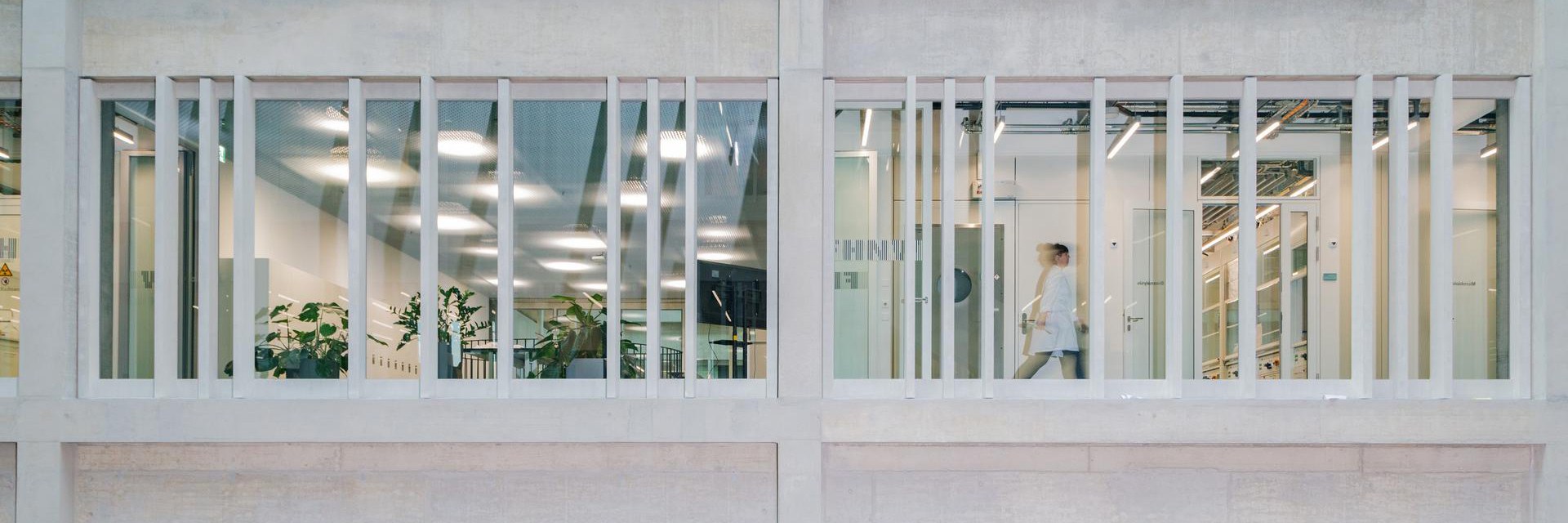
Transformation of the Life Sciences Industry
New ways to make Life Sciences more circular
This workshop is organized by FHNW School of Life Sciences in cooperation with Life Sciences Cluster Basel - eine Initiative der Handelskammer beider Basel.

Incorporating green chemistry and fostering the development of new technologies into the transition of the life sciences industry is essential to achieve sustainable innovation while reducing environmental impact. A circular economy approach can further enhance sustainability by designing products and processes that minimize waste, enable resource recovery, and promote reuse throughout the lifecycle of products. Green chemistry principles can be integrated with circular economy strategies across the entire lifecycle—from discovery and development to manufacturing, use, and disposal—ensuring that materials and resources remain in use for as long as possible. By aligning innovation with these principles, the life sciences industry can move towards a regenerative model that supports both economic and environmental goals.
This interactive workshop will provide a comprehensive overview of the transition of the European chemical industry toward circular and biobased alternatives, with a special focus on network building and project funding opportunities between academia, politics, and industry.
Datum und Zeit
28.4.2025 (ganztägig) iCal
Ort
FHNW Campus Muttenz, Hofackerstrasse 30, 4132 Muttenz
Veranstaltet durch
Hochschule für Life Sciences
Institut für Ecopreneurship
Life Sciences Cluster Basel - eine Initiative der Handelskammer beider Basel
Kosten
CHF 50
Veranstaltungssprache
Englisch
The shift to circular and biobased solutions is both an ecological necessity and a significant economic opportunity. Challenges include:
- Developing and implementing green chemistry approaches, including CO₂ fixation technologies, energy-efficient processes, and innovative circular solutions to reduce waste and minimize the environmental footprint, and replace PFAS with safer options while addressing existing PFAS contamination
Take the opportunity to deepen your knowledge and exchange ideas on one of the following topics, while collaboratively creating new innovative ideas:
1. PFAS: How to tackle this 21st century problem
2. Hydrogen and Carbondioxide: Opportunities for Sustainable Technologies
3. Merging “Circular” with “Economy” by deep(er) process understanding
Key Highlights
- Expert Presentations: Industry leaders and top researchers will showcase successful examples of chemical industry greening, biorefinery development, and green chemistry innovations such as CO₂ capture and utilization
- Interactive Sessions: Engage in discussions and activities to identify new project and funding opportunities, tackle specific challenges, and build a roadmap for success
By focusing on collaboration, funding, and innovation in green chemistry, this workshop offers a unique platform to drive the transformation of the chemical industry. Be part of shaping a circular, sustainable, competitive, and environmentally friendly future.
Agenda
| 9.00-9.15 | Welcoming | Prof. Dr. Falko Schlottig, Direktor FHNW School of Life Sciences |
| 9.15-9.45 | Circular Economy for Life Science in Basel area: implementation-oriented measures and project ideas | Emmanuel Oertlé, Chair of the Executive Board, Go Circular in Life Science, Supported by BaselCircular |
| 9.45-10.15 | CellX Biosolutions: Sustainable treatment of PFAS through biodegradation | Estelle Clerc, CellX |
| 10.15-10.45 | Linde - hydrogen and carbon capture technologies - a contribution to a sustainable energy transition | Pasquale Piserchia, Linde Gas Schweiz AG, Business Development Manager, Applications & Technology |
| 10.45-11.05 | Coffee break + Networking | |
| 11.05-11.35 | Circular Economy | developing products based on the 10R-strategies | Prof. Dr.-Ing. Manfred Renner, Fraunhofer Institute for Environmental, Safety and Energy Technology UMSICHT, Head of Institute |
| 11.40-12.00 | Bruker – The Role of Automation in Advancing Green Chemistry with Accelerated R&D | Bernd Gleixner, Division President Automation, Bruker Biospin Group |
| 12.00-13.00 | Lunch break | |
| 13.00-15.00 | Workshop topic 1: PFAS: How to tackle this 21st century problem | Moderation: Prof. Dr Marco Rupprich, Head of Institute for Ecopreneurship, FHNW School of Life Sciences |
| 13.00-15.00 | Workshop topic 2: Hydrogen and Carbondioxide: Opportunities for Sustainable Technologies | Moderation: Prof. Dr. Daniel Varón Silva, Group leader Organic Chemitry Prof. Dr. Sebastian Wendeborn, Head of Institute for Chemistry and Bioanalytics FHNW School of Life Sciences |
| 13.00-15.00 | Workshop topic 3: Merging “Circular” with “Economy” by deep(er) process understanding | Moderation: Prof. Dr.-Ing. Wolfgang Riedl, Group leader Process Technologies, FHNW School of Life Sciences |
| 15.00-15.30 | Coffee break | |
| 15.30-16.00 | Grant acquisition possibilities with Innosuisse- Characteristics of a successfull Innosuisse Project | Thomas Martignier, Scientific Officer Life Sciences, Innosuisse – Swiss Innovation Agency, Project and Programme Funding |
| 16.00 | Closing words | Prof. Dr. Falko Schlottig, Prof. Dr. Marco Rupprich FHNW School of Life Sciences |
| 16.30 | Apéro | Networking, exchange of ideas and innovations |
